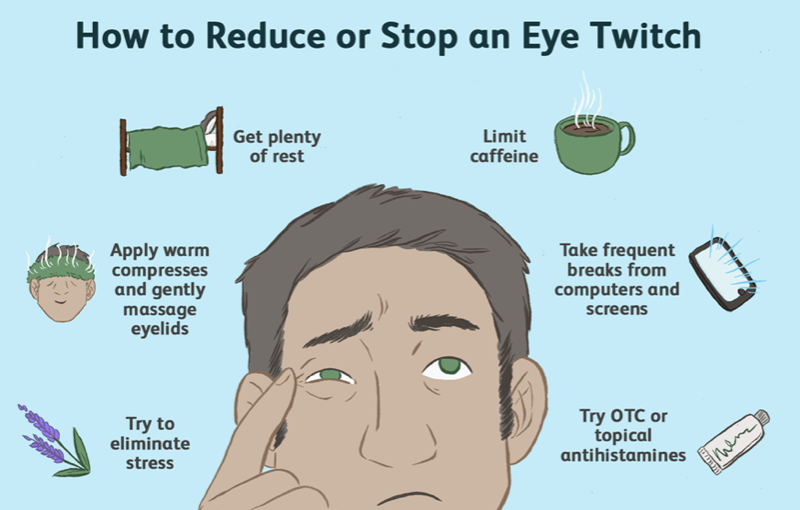An eye twitch is an eye muscle or eyelid spasm that causes an involuntary or abnormal blinking of your eyelid. The lid moves every few seconds and lasts for a minute to two. In severe cases, the vision can be affected. Eye twitching can occur in both upper and lower lids.

Generally, the three different types of eye twitching are eyelid myokymia, essential blepharospasm, and hemifacial spasm.
Eyelid twitching or spasms may be caused by:
Other ocular conditions that can cause twitching sometimes include:
In rare conditions, eye twitching can be symptomatic for people with brain or nerve disorders such as:
